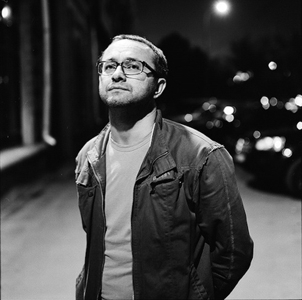Cannes review of Leviathan
05/22/2014
The latest from Andrey Zvyagintsev is a worthy successor to Elena and The Return
Too often critics can, when trying to impose a gloss on this or that film, decide that the unruly beast is really a "western in disguise". Excuse us. But that is certainly how Andrey Zvyagintsev's ambitious, satirical tale of greed and corruption starts out. The film concerns Kolya (Aleksey Serebryakov) and Lilya (Elena Lyadova), a couple living on a harsh outcrop on the Barents Sea. The townland is under the thumb of a rapacious mayor who will stop at nothing to get hold of every property, but, suspecting that the villain wants to build himself a palace, Kolya resists all attempts at compulsory purchase. Leviathan begins with him driving an old friend, a lawyer, into town with a mind to appealing the order. A showdown is coming.
Zvyagintsev, director of two near-masterpieces in The Return and Elena, had other models in mind. In the run up to production, he suggested that (like the Coens' A Serious Man) the film was intended as a take on the Book of Job. Kolya certain has his trials (some of his own making). Lilya, his younger second wife, is not getting on with his teenage son. She may have eyes for another men. As the film progresses, these and other tensions threaten to pull his life apart.
There is, moreover, no mistaking Zvyagintsev's intension to offer us something of a (very pessimistic) state of the nation address on the new Russia. The mayor's activities remind us of the corruption everywhere about. The drinking is (even for an Irish audience) stupendous in its volume and intensity. Everywhere a sort of resigned fatalism keeps the characters mired in the Dostoevskian mud. In one of many, blackly funny sequences Kolya and his pals drive out to a remote location to drink yet more booze, eat meat and discharge firearms at empty bottles. The host of the barbecue then produces images of Russian leaders — Lenin, Stalin, Gorbachev — and, to general glee, suggests that these be used as targets. "No recent ones though," he says. "There's not enough of a historical perspective."
Mikhail Krichman, the director's regular cinematographer, casts a sombre beauty over the Northern locations and the superb cast all grasp every opportunity put their way. Serebryakov runs the gamut from drunken euphoria to utter despair. Lyadova looks lost throughout as Lilya.
Yet, for all the film's beauty, humour and anger, it doesn't quite have the overpowering effect of The Return or Elena. What's missing is focus. The mayor drops out of the picture for long periods. Lilya's motivations are often obscure. The continuing metaphor of the Leviathan — referenced by the local minister; honoured in sightings of living and dead whales — isn't sufficiently rigorously explored.
The film does, however, come triumphantly together in a delicious final scene that is both grim and hilarious. One leaves in little doubt that Zvyagintsev is one of our era's true masters. Reservations be damned, this is great Russian cinema from a film-maker who speaks to all nations. There would be no great objections in this corner if it took the Palme.
Donald Clarke
THE IRISH TIME
